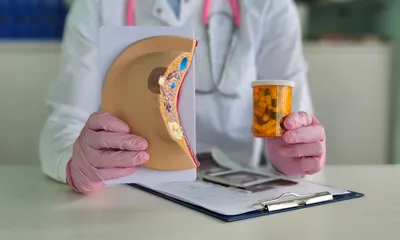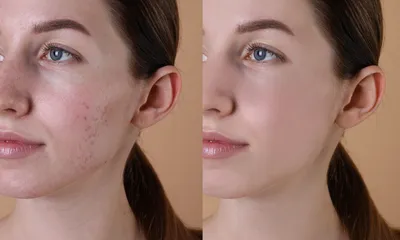Blood Pressure
-
Description
-
Signs & Symptoms
-
Anatomy
-
Cause
-
Diagnosis
What is High Blood Pressure?
High blood pressure is when the heart is pumping blood through the arteries with much more pressure than is normal. This condition is also referred to as hypertension, and people can have high blood pressure for a long time before they become aware of it or become aware of the damage it has already done to their vascular health.
The increased pressure places it on artery walls and the walls begin to lose their natural elasticity and harden, as well as losing structural integrity. Hardened arteries from high blood pressure increase the risk of heart attack and stroke for sufferers.
The diagnostic criteria for having high blood pressure is a systolic blood pressure reading of 130 mmHg or higher, and a diastolic blood pressure reading of 80 mmHg or higher. People with worsening hypertension often don’t have symptoms to indicate it, which is why testing for high blood pressure is a part of most yearly medical checkups for people over the age of 40.
What Causes High Blood Pressure?
There are two types of high blood pressure. Primary hypertension is caused by poor dietary choices, and especially getting too much sodium in a person’s diet. Lack of regular physical exercise and excessive consumption of alcohol can also be contributors to primary hypertension. Secondary hypertension usually results from kidney disease or renal vascular diseases, thyroid disease, medication use, obstructive sleep apnea, and primary aldosteronism.
Tobacco smoking and recreational drug use may also contribute to a person having secondary hypertension, and lower blood pressure is one of the benefits of either quitting both or moving to enjoying them more in moderation. There are also inherent risk factors for high blood pressure, and they include:
- Genetic predisposition (inherited hypertension)
- Age (most people with high blood pressure are over 55)
- African American ancestry
Middle-stage insomnia may be part of what causes high blood pressure when a person has nocturnal hypertension. This is when a person’s high blood pressure increases when they begin to sleep.
High Blood Pressure Treatment
The most conventional approach to high blood pressure treatment is to have the person start on ACE (angiotensin-converting enzyme) inhibitor medications like Accupril or Benicar. ARB (angiotensin receptor B) inhibitor medications are also a possibility and work equally well much of the time for hypertension patients. The same may apply for calcium channel blocker drugs, and for some people diuretics (water pills) are recommended to enhance the effectiveness of high blood pressure medications.
A doctor may also advise the patient to make diet and lifestyle changes to lower blood pressure. These may include eating a healthier diet and getting much less sodium (salt) from it. It may also be beneficial to intake much more potassium, either through diet or with supplementation. Getting more vigorous cardiovascular exercise and cutting back on alcohol consumption may also be among their recommendations for high blood pressure treatment.
Signs & Symptoms
- Headaches
- Shortness of breath
- Nosebleeds
- Flushing
- Dizziness
- Chest pain
- Visual changes
- Blood in urine
- Fatigue or confusion
Anatomy
- Arteries
- Heart
- Kidneys
- Brain
- Eyes
- Blood vessels
Cause
- Genetics
- Age
- Obesity
- Lack of physical activity
- High salt diet
- Alcohol consumption
- Stress
- Chronic kidney disease
- Adrenal and thyroid disorders
- Sleep apnea
Diagnosis
- Blood pressure measurement
- Ambulatory blood pressure monitoring
- Blood tests
- Urine tests
- Electrocardiogram (ECG)
- Echocardiogram
- Kidney ultrasound
- CT or MRI scans



